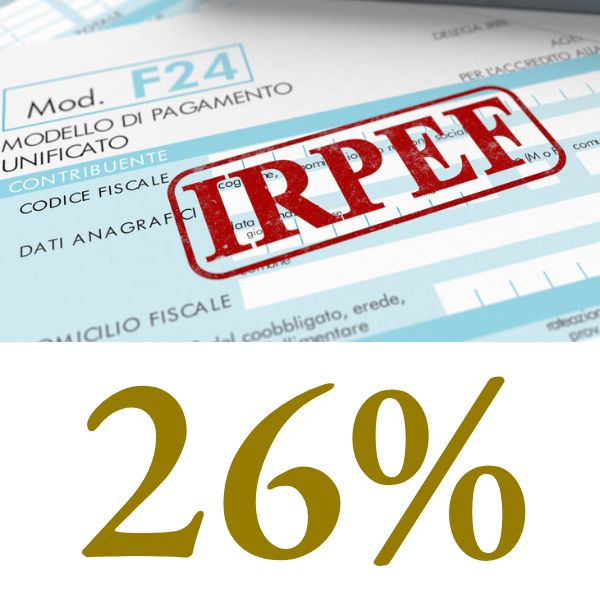Setting the stage: Brussels wants homework in October
While the UK plays calendar Enie Meenie minie mo with Spring/Autumn Budgets (and the occasional “surprise!” emergency one), the EU prefers punctuality. Every October, member states hand in their budgets like model students. In 2024, everyone also had to submit a four-year plan to steer national debt toward (or below) 60% of GDP—the EU’s collective happy place.
Spain’s Budget 2025
By Tom Worthington
This article is published on: 12th September 2025

Spain, after a domestically bumpy 2024 (Reuters politely called the 2024 draft “discontinued,” which is the fiscal equivalent of “we meant to do that”), pivoted to 2025—and got Brussels’ nod in late November for a longer seven-year clean-up plan under the rebooted EU fiscal rules. Translation: fewer vibes, more spreadsheets.
What actually changed (a.k.a. the “please don’t shoot the messenger” bit)
Goodbye, tax holidays
- Basic foods slid back to their usual 4% VAT, olive oil included (collective sigh across Iberia).
- Electricity returned to 21% VAT.
- Fuel duty nudged up.
Net result: monthly bills did the opposite of “Mediterranean chill.”
Nine new tax rises for 2025
Congress kicked off the 2025 tax year with nine approved increases, targeting roughly €4.5bn/year in extra revenue. Among the eyebrow-raisers:
1. “Bank Tax”: A progressive levy on net interest margin + commissions earned in Spain (roughly 1% to 7%).
2. Savings Income Tax: For incomes over €300,000, the top rate rises from 28% to 30%.
*Yes, this can touch insurance policy withdrawals and other taxable gains—mainly relevant for the well-heeled.
Business translation: banks are the piñata; high-net-worth savers bring an extra 2% candle to the tax cake.

Property:
The spicy bit everyone is arguing about…
Regional Property Transfer Tax still varies (hello, Valencia at 10% for buyers, residents and non-residents alike).
But the big headline: reports that Spain is considering a tax of up to 100% on properties bought by non-EU residents (yes, that includes the UK and US).
- PM Pedro Sánchez framed it as an “unprecedented” step amidst a housing emergency, warning against a society split into “rich landlords vs. poor tenants.”
- He cited 27,000 homes bought by non-EU residents in 2023 “not to live in, but to make money.”
- The Property Registry estimated foreigners (EU + non-EU) were ~15% of sales in 2023 (~87k of 583k total).
Important fine print: This is about plans and proposals being discussed, not a done deal. If you’re a non-EU buyer, keep your lawyer on speed-dial and your pulse steady.
Wealth & Solidarity: the sequel nobody asked for (but everyone pays attention to)
Spain has long had Wealth Tax for residents with net wealth ≥ €700,000, but regions can—and did—play with allowances. Madrid and Andalucía famously went full 100% relief.
Cue the central government’s 2022 plot twist: a “temporary” Solidarity Tax layered on top, using Wealth Tax rules as the base. Exemptions broadly still apply (primary home up to €300,000, business assets when it’s your main activity, and qualifying shareholdings >5%—or >20% family-owned). After exemptions, Solidarity hits at:
- €3m – €5,347,998: 1.7%
- €5,347,998 – €10,695,996: 2.1%
- Above €10,695,996.06: 3.5%
Also remember: non-residents can face Wealth Tax on Spanish-sited assets. Double Tax Treaties may soften the edges—but bring a professional to the knife fight.

The surprisingly cheerful chapter:
Inheritance tax (mostly) retires to the beach
Spain’s regions have been trimming Succession Tax like a minimalist Marie Kondoing their wardrobes:
- Madrid: 99% relief for Groups I & II (close family) for years now, plus 25% relief since 2023 for siblings, uncles/aunts, nephews/nieces.
- Andalucía (since 2022): €1m allowance + 99% relief for spouses/ascendants/descendants (inheritances; gifts differ). Group III allowance €10,000, top rate 26%.
- Balearic Islands (from 18 Jul 2023): 100% reduction for Groups I & II (residents only). Group III? -50% for siblings/uncles/aunts/nephews/nieces; -25% for in-laws.
- Canary Islands (from 6 Sep 2023): 99.9% reduction for Groups I–III, and for gifts to I–II.
- Valencia (draft approved 5 Sep 2023): 99% reduction for Groups I & II, mirroring Murcia/Andalucía vibes.
Estate-planning translation: check your postcode—it matters more than your zodiac sign.
Who should care (and why)
- Banks: Expect margin/comms to feel… taxed. (On the bright side, you’re still not a fintech.)
- High-net-worth investors: That 30% top savings rate taps your shoulder at €300k+ incomes. Tax deferral may become your new best friend.
- Non-EU property buyers: Keep watching the “up to 100%” tax proposal. This is the policy equivalent of a weather warning: it may drift, split, or hit land.
- Heirs in certain regions: Inheritance tax often now says, “I’m off to Ibiza.” Confirm local rules, then celebrate responsibly.

Jargon-buster (with tapas)
- TARIC: The EU’s giant library of tariff codes—great for insomniacs and importers.
- Wealth vs. Solidarity: Same family, different personalities. Solidarity uses Wealth Tax’s base… and adds an extra bill for the very wealthy.
- Groups I–III: Family-proximity ladder for inheritance reliefs (spouses/children up top; in-laws somewhere near the sand).
Practical checklist (so you can look clever on Monday)
- If you bank or broker in Spain: Model the 1–7% bank tax impact on your P&L and pricing.
- If your savings income can top €300k: Re-evaluate wrappers, timing of withdrawals, and asset location.
- Thinking of buying in Spain as a non-EU resident: Pause, get advice, and track the 100% property tax proposal closely.
- Inheritance planning: Re-run scenarios by region—reliefs can be massive, but rules differ.
- Budgeting households: Expect higher baseline costs from VAT/fuel/electricity resets; shop around, switch tariffs, and stop treating olive oil like cologne.
Conclusion
Spain’s 2025 plan blends EU-approved fiscal discipline with domestic social aims—and a dash of headline-grabbing housing policy.
For investors and families alike, the theme is simple: location matters, timing matters, and reading the footnotes definitely matters.
Opening a Bank Account in Spain
By Matthew Green
This article is published on: 11th September 2025

One of the first things you’ll need when moving to Spain is a local bank account. Whether you’re paying rent, utilities, or just want easy access to cash, having a Spanish account makes life much simpler. Here’s what you need to know.
1. Types of Bank Accounts in Spain
- Resident Accounts: For those officially registered as residents.
- Non-Resident Accounts: For people living abroad or not yet registered. Often with higher fees.
Tip: Once you have your padrón and residency, switch to a resident account for better conditions.
2. Documents You’ll Need
- Passport or national ID
- NIE (Foreigner Identification Number)
- Proof of address (rental contract, utility bill)
- Proof of income (employment contract or pension statement)
Some banks also ask for a non-resident certificate, which can be obtained from the police station or arranged by the bank.
3. Which Bank Should You Choose?
Spain has a mix of traditional banks (Santander, BBVA, CaixaBank) and digital options (Wise, N26).
Consider:
- Language support (does the bank offer English service?)
- Fees (some charge monthly maintenance)
- Online banking and app usability
4. Common Pitfalls
- Forgetting to update your status from non-resident to resident account.
- Unexpected fees—always ask for a fee schedule in writing.
- Assuming all banks offer English-speaking staff (many don’t).

Plan Ahead for a Smooth Transition
Opening a bank account is a key step – but so is understanding how to structure your income, savings, and investments in Spain. Banking here is different, and so are tax rules.
As a financial planner with The Spectrum IFA Group here in Valencia, I help expats like you make smart decisions for a stress-free life in Spain.
If you’d like a free, no-obligation chat about setting up your finances for life in Spain, feel free to get in touch. It’s all about making sure you can enjoy everything Valencia has to offer—without financial stress.
How to Register for the Padrón and NIE in Valencia
By Matthew Green
This article is published on: 8th September 2025

If you’re moving to Valencia, two words will come up quickly: padrón and NIE.
Both are essential for everyday life, but the process can feel overwhelming. Here’s a simple guide.
1. What is the Padrón?
The padrón municipal is the local census—registering your address with the town hall (ayuntamiento). It’s needed for:
- Health care
- School enrollment
- Resident parking permits
- Tax purposes
2. How to Register for the Padrón in Valencia
You’ll need:
- Passport or national ID
- NIE (if you have it)
- Rental contract or property deed
- Completed application form
Book an appointment (cita previa) on the Valencia City Hall website or by phone. Registration is usually free.
3. What is the NIE?
The Número de Identificación de Extranjero is your foreigner ID number. You’ll need it for almost everything: buying property, opening a bank account, paying taxes.
4. How to Get an NIE
- Apply at the foreigners’ office (Oficina de Extranjeros) or at a Spanish consulate abroad.
- Bring passport, completed EX-15 form, proof of why you need the NIE (e.g., work contract), and pay the fee (around €10).
Appointments must be booked in advance—and they fill up fast.

Common Tips
- Make photocopies of everything.
- Arrive early for your appointment.
- Consider using a gestor to avoid headaches if your Spanish is limited.
Plan Ahead for a Smooth Transition
Getting your padrón and NIE sorted is an important first step—but financial planning should be next on your list. From tax planning to pensions and investments, having a strategy will make life in Spain easier and more secure.
As a financial planner with The Spectrum IFA Group here in Valencia, I help expats like you plan for a stress-free life in Spain.
If you’d like a free, no-obligation chat about setting up your finances for life in Spain, feel free to get in touch. It’s all about making sure you can enjoy everything Valencia has to offer—without financial stress.
Financial update Italy – September 2025
By Gareth Horsfall
This article is published on: 8th September 2025

Hello again and welcome back to my Ezine after the summer break. I hope you are well and that the somewhat fresher Italian summer was a surprise for you as well. We were not sweltering in 38 degrees this year but enjoying a more pleasurable low 30s for most of the summer. It was a welcome change from last year, for example, when I saw the last rain in mid-May and not again until mid/end Sept.
It was also my first holiday away after our change of lifestyle to the country and with all this land, trees, and plants to manage. I have to say that although time at the beach was great and a welcome break from the country, I did find myself wanting to come back and see how all the plants were doing and also how the olives were developing after lots of summer rainstorms. It was pure curiosity because on my return I found that the whole situation is largely as it was last year at the same time. Grass needs cutting, and a few other jobs need doing, but in general everything is coming along nicely.
For those of you with whom I am friends on FB, you will have seen that I came back to a bumper crop of apples, pears, and figs. The figs are finding their way into my pancia quite quickly and are super delicious. (and I have my new wicker basket for collection – which my wife jokingly bought me at a ‘sagra’ event recently, very Laura Ashley)

Amelia is famous for its figs, so it’s no surprise that the trees are full of fruit again, exactly the same as last year. The apples and pears, I have now discovered, are different varieties and were pretty much falling off the tree, so I harvested the rest and they have now gone into cold storage until I can get round to doing something with them. (My mum reminded me that my grandfather used to sell fruit and veg and, to preserve fruit, he used to wrap each single piece in newspaper and then put them in cold storage somewhere. Apparently they kept for a few months.
Mine have gone into the underground cellar, which hosts the resident bats. It maintains a constant temperature of about 12 degrees all year round. They can stay there until I get round to dealing with them shortly).
The break also gave me some nice time to reflect on landscaping, round No. 2, this winter. I have made some decisions on some trees which are currently unmanageable. I think I will be lopping off the tops and starting to prune them again into smaller and much more workable trees. Also, I had some ideas about other landscaping possibilities, but one step at a time. Of course, there are the olives to deal with in a couple of months and they seem to be coming along just fine, although the mosca has attacked many this year due to the cooler and wetter summer temperatures. Also, after a serious potatura in the spring, the fruits are fewer than last year. I just hope that the oil content is higher. It’s all a big learning curve!
So now my country life update is out of the way, onto the financial context of this Ezine, but before that I also wanted to share with you some rather disturbing news which I think you should all know about, whether a client or not……..and to watch out for.

Fraud and AI
Earlier in the year we introduced some new security protocols regarding withdrawals from policies/portfolios which clients hold with us. We had been made aware that another financial planning company operating in the Middle East had received a fraudulent request to withdraw funds from a client portfolio. But in this case it turns out that it wasn’t the client making the request, but in fact some Artificial Intelligence application. The worrying aspect of this was that the adviser was contacted directly by the client on WhatsApp and email asking to withdraw a sum of money and have it paid to their nominated bank account. The adviser had an exchange of messages with the so-called “client,” not suspecting anything untoward. When the money had been paid, the actual client rang to ask the adviser why money had been deducted from his portfolio.
I think you can probably understand the ins and outs of this situation. It was a fraudulent approach using Artificial Intelligence.
AI certainly has its positive uses (I have translated some of the content in this Ezine from Italian to English which used to take me a long time, but was done in 3 seconds). However, this is certainly one very dangerous and worrying angle.
Therefore, since the start of the summer The Spectrum IFA Group have introduced a policy of meeting with the client in person or, if not possible due to geographical restrictions, then an video call with documentation required, where a withdrawal is requested. A phone call is not acceptable, nor purely communication via message or email.
We have introduced this to protect our clients and will keep track of the situation as and when we hear more. However, whether you are a client or not, please be alert to messaging and emails when dealing with your financial affairs. Try and engage either in person or via video call ONLY. Do not assume that messages or emails are from the actual person. If in doubt, pick up the phone and call!

Capital gains tax on the sale of property in Italy
I am not sure why, but like buses, the same query seems to crop up multiple times at the same moment, and so it happens that I received a number of queries this summer around the capital gains tax on the sale of property, as a resident in Italy and specifically the implications of selling property either in Italy or abroad.
So let’s look at the details…
The baseline rule is that if you are a resident in Italy and you sell a property after the first full five fiscal years from purchase (not your Prima Casa – different rules apply here, read on for details), you are NOT required to pay tax on any capital gain (CGT) resulting from the sale. This applies to properties you hold in Italy or abroad and applies whether it is your 2nd or 15th property!
This stems from the idea of a speculative intent to buy/sell property and where there is no intent then capital gains tax is not applied. (a nice tax planning opportunity!)
Speculation in Italy is defined as follows:
- the property is sold for consideration (e.g. sale, exchange, contribution to a company)
- the property is sold within five years of purchase or construction
- the property must not have been used as the seller’s (or family’s) main residence if it is a residential unit.
These rules also apply to property located abroad!
If the sale is subject to taxation (because you are selling within the first 5 years since purchase), then you can either opt for:
A substitute tax of 26% (standard capital gains tax rate) at the time of the deed (the notary is responsible for the payment), or
The standard income tax rates (IRPEF), with the possibility of using deductible and creditable expenses such as bonus edilizie, pharmacy expenses, doctors’ bills, etc. Bear in mind that the lowest rate of income tax in Italy is also 23%, so depending on your other income for the year you could fall in the lowest rate of income tax (€0–28,000 p.a.) and be able to reduce the taxable amount even further with deductions.
Below is a list of the main rules to consider:
Taxable conditions
As with all things taxation, it is important to understand the conditions:
- Capital gains tax applies as a result of property purchased, or built, less than five years earlier.
- An exemption is given for urban residential units that, for most of the time between purchase (or construction) and sale, were used as the main residence of the seller or their family. (The idea of Prima Casa)
- As well as, in all cases, capital gains realised from the sale of land that can be used for building (terreno edificabile) according to planning rules in force at the time of the sale.
In the case of donated/inherited property, the five-year period is calculated from the donor’s acquisition date.
(This is particularly important for anyone who might inherit a property from a deceased parent, for example. If you wish to dispose of the property it would be more advantageous to do so in the probate process, otherwise you may have to wait another 5 years before you could dispose of the property to avoid capital gains tax…. if any). However, if you take the property into your name and then can sell it quickly, you may avoid capital gains tax if the property value has not increased between the acquisition and sale.
Exemptions
Exempt from taxation are:
- Sales of properties used as the seller’s or their family’s main residence for most of the period between purchase/construction and resale (the 5-year rule does not apply here – Prima Casa rule!).
- Sales of inherited properties (per Article 67, paragraph 1, letter b) TUIR).

The five-year rule
The 5 years run from the purchase deed (or from the later date of transfer of ownership rights).
- If built by the seller, then the 5 years run from completion of construction.
- The period ends on the date of the sale deed, regardless of when payment is made.
- Renovations or extensions do not restart the five-year period!
Speculative operations: property flipping
If you fancy yourself as a property magnate and decide to try your hand at buying, renovating, and then selling repeatedly within the 5 years (“property flipping”), this constitutes a commercial activity and in this case:
- The capital gains are taxable, and
- The seller is required to operate as a business with VAT registration and related tax and social security obligations.
Calculation of taxable capital gain
It’s a simple formula:
Sale price – (Purchase price / Construction cost + related documented costs)
Allowable related costs include:
- Notarial and accessory expenses,
- Indirect taxes paid at purchase (registration, mortgage, cadastral taxes, or VAT),
- Improvement expenses (extraordinary maintenance, renovations),
- Costs for removing tenants.
It is important to keep all documentation relating to any property purchase/sale for at least 10 years in Italy.
For construction:
- Building contracts, design fees, municipal charges, post-construction improvements.
The gain is taxable in the year the payment is received.

Taxation methods: IRPEF (income tax) or substitute tax (flat rate of 26%)
Capital gains from property sales fall under “other income” (reddito diverso) and you have 2 options for taxation:
- Ordinary IRPEF (income tax) – the gain is added to your total taxable income and taxed progressively (23% up to €28,000, 35% from €28,000–50,000, 43% above €50,000). Deductible and creditable expenses can reduce your tax.
This is a nice potential financial planning option because you may choose to split the tax between spouses by sharing ownership, or put it in one person’s name rather than another to maximise your lowest income tax brackets. It has multiple possibilities and should be explored should the need arise.
- Substitute tax of 26% – flat tax, applied at the time of the notarial deed. The notary withholds and pays it. No deductions/credits can be offset. This is also not subject to tax audit, so may be a preferable option for some.
Generally, taxpayers with other taxable income find the 26% substitute tax more advantageous.
Other cases
- Donation: 5 -year period runs from donor’s acquisition date.
- Built by seller: 5-year period runs from completion.
- Main residence: exempt if used as main home for most of the ownership period, even within 5 years.
- Building land: always taxable when sold; substitute tax cannot be applied.
- Agricultural land: taxable only if sold within 5 years.
- Property with buildings to be demolished: treated as building land → taxable.
- Previously subdivided property: taxation depends on whether subdivision counts as new construction.
Statute of limitations for tax assessments
The Agenzia delle Entrate can assess omitted/under-reported gains:
– Within 5 years from the year after the tax return was filed;
So there we have it. All the facts regarding capital gains tax and property in Italy. For most people I know it rarely comes into consideration because the properties are owned for more than 5 years. However, on odd occasion CGT needs to be considered. For somewhere like the UK that introduced CGT on property purchases for non UK residents, the tax interest lies in the UK and not in Italy which is a relief because you don’t have to worry about paying it in 2 places. However, if you think it is applicable to you, then take the necessary advice before you sell.
Webinar – Buying your dream home in France
By Peter Brooke
This article is published on: 6th September 2025

Join our expert panel
Wednesday 24th September
6pm – 7pm UK time
Karen Tait – Host and Presenter
Lisa Greene – French property expert (LEGGETT Immobilier Intl)
Jonathan Watson – Currency Specialist (LUMON)
Paulette Booth – Insurance expert (AXA International)
Tracy Leonetti – Relocation & French admin expert (LBS in France)
Sharon Revol – Mortgage expert (Cafpi)
Peter Brooke – Tax and Wealth Expert (The Spectrum IFA Group)
Join our live webinar about moving to and living in France.
Speak to the experts about the property buying process in France, currencies transactions, insurance, the relocation paperwork…, mortgages in France, plus the all important financial and tax questions about moving to France.
Sign-up to the webinar – and if you have some specific questions, enter them on the form and our panel of experts will do their very best to answer your questions during the webinar on Wednesday 24th September

Le Tour de Finance France
By Spectrum IFA
This article is published on: 6th September 2025

Le Tour de Finance – France
Are you thinking of moving to France?
Interested in finding out how to make the most of your finances as an expatriate?
Do you have questions about Assurance Vie, tax efficient investing, pensions (including QROPS), investment markets, estate planning etc?
Join us, and our panel of guest speakers, for informed guidance on French resident tax and financial planning opportunities, commentary on investment markets and to meet like-minded people in your local area.
Le Tour de Finance is the financial forum for English speaking expatriates which can help you with a range of different financial products and services. Just as Le Tour de France takes a route throughout the regions of France, so too does Le Tour de Finance, plus we now journey into Italy and Spain.
We want to reach expats where they live so that everyone can seek specific advice relevant to your local area. Tax advice, pensions, mortgages, healthcare, schools, business advice and making the most of your assets are just some of the subjects that expats need to know more about when living as an expat. Le Tour de Finance is the ideal opportunity to find answers to the most pressing questions facing British people living in France, Spain or Italy.
The forum will bring together key players who assist English speaking expatriates settling or already living in these countries. It will also be an ideal opportunity to socialise by enjoying a free Buffet lunch and meeting people in similar circumstances in your neighbourhood.
Webinar – Moving to Malaga, Spain
By Jett Parker-Holland
This article is published on: 5th September 2025

Join the Webinar
Moving to Malaga
23rd September 5pm UK | 18.00 CET

Dreaming of a new life in the sun?
Whether you’re just starting to explore or actively planning your move, join The Spectrum IFA Group and the expert partners for a free, live webinar designed to guide you every step of the way.
- Property insights from BluCee Real Estate
- Visa & residency guidance from Help at Hand Spain
- Currency exchange tips from Lumon
- The financial and tax planning for your move – Jett Parker-Holland, Spectrum IFA Malaga office
- How to choose the right health insurance with Sam Campbell Insurance
Financial update in France – September 2025
By Katriona Murray-Platon
This article is published on: 4th September 2025

After a long sunny summer it is nice to get properly back to work now that my children have returned to school. It is also nice to have had some days of rain since the garden was in desperate need of it.
Over the summer you should have been notified that your tax statements are available online. If you paid too much tax this was reimbursed on 25th July. If you are not paying your tax by direct debit from your account, you must pay your tax by 20th September. If you have provided your bank details to the tax office and you have more tax to pay, your monthly payments will increase from 15th September and, if you have more than €300 to pay, you will have to pay off this amount over the next four months on 25th September, 25th October, 25th November and 29th December. If you have less than €300 to pay, it will be taken out in one payment on 25th September. Please do check your tax return as mistakes often occur.
Most people don’t notice the mistake until they are asked to pay an unusually high amount of tax and then they realise that other mistakes were made in previous years. If you do notice something wrong, you must first pay the tax that is requested on the statement and then submit an amended return. Any tax overpaid will be repaid once the new statement is produced.
As announced in my previous Ezine, the interest rates for the Livret A and LDDS savings accounts fell from 2.4% to 1.7%, the LEP interest rate fell from 3.5% to 2.7% and the interest rate for the CEL account fell from 1.5% to 1.25% as from 1st August 2025.
The markets continued to perform well in July and August, with US equities hitting record highs. This was in part due to concerns over tariffs diminishing, as numerous trade deals were signed leading up to the Trump administration’s 1st August deadline. Although the Trump administration considered these deals frameworks, including deals with Japan, the European Union (EU) and South Korea, as a political victory, they were vague on details and lacked clarity. However the markets appear to be less reactive over such tariffs, at least for the moment, which may indicate that volatility will not be as severe as it was in April. Strong corporate earnings and solid jobs data also buoyed equities.
UK inflation accelerated to 3.8% in July, the highest level since January 2024, while Eurozone inflation held steady at just 2%. This marks the widest gap between the UK and its European peers in nearly two years. Meanwhile the US dollar rose 3.2% in July, its best month since 2022, as the Fed indicated it was still in no rush to cut rates. With inflation above the Fed’s 2% target, and the full impact of tariffs on inflation unknown, the Fed seems to be taking a ‘wait and see’ approach.

For those with Pru assurance vies or those thinking of investing in a Pru Assurance Vie there is good news as, on Tuesday 26th August 2025, the Prudential Assurance Company (PAC) board reviewed the Prufund Expected Growth Rates (EGR) as part of the quarterly review process.
The Prufund aims to help customers grow money over the medium to long term ( 5 to 10 years) and protect customers from some of the short-term ups and downs of the markets by using the unique established smoothing process.
The Expected Growth Rate (EGR) is the forward looking element of the Prufund smoothing process. Pru announced that the EGRs for the GBP versions of Prufund were increased by 0.1%. So the Prufund Growth GBP is now 7.4% and the Prufund Cautious GBP is now 6.7%. The EGRs for all the Euro and USD versions of the Prufund remain unchanged. The Unit Price Adjustment (UPA) part of the smoothing process, which is a backward looking element, and which is formulaic and non-discretionary, is also reviewed quarterly. This quarter there was an upward UPA for the Prufund Growth USD version of 3.55%. There were no Unit Price Adjustments in the other PruFunds.

Going into the Autumn with varying inflation levels across key economies, continuing uncertainty with tariffs and ongoing geopolitical concerns in the Middle East and Europe, all which impact market performance, it is as ever important to maintain a well-diversified long-term investment approach, rather than reacting to short-term market swings.
With careful planning, and appropriate advice and reassurance, our clients can navigate through periods of volatility and uncertainty.
If you have any questions on the above or any other matters, please do get in touch to arrange a time to discuss your personal financial situation.
Smart Money Moves for Autumn in France
By Amanda Johnson
This article is published on: 2nd September 2025

As we head into the colder months, it’s a great time to take stock of our household budgets. Rising costs, unexpected bills, and day-to-day living expenses can all eat into our savings — but there are plenty of ways to trim costs without cutting back on the lifestyle you enjoy. Here are some simple, practical money-saving tips for life in France this autumn.
1. Make the most of supermarket loyalty schemes
Most major French supermarkets offer loyalty cards, digital coupons, and newsletters that give access to discounts and special offers. Signing up to your local supermarket’s loyalty scheme is free, and the savings soon add up. Keep an eye out for “10% days” or product-specific promotions, which are often advertised via email or app notifications.
2. Check your electricity tariff
Energy bills are one of the largest household costs, and yet many people are still on outdated or less competitive tariffs. It’s worth checking with your supplier to make sure you’re on the most cost-effective option. Some tariffs offer cheaper off-peak rates, which can be especially useful if you use storage heaters or large appliances. Even a small monthly saving soon adds up over the course of a year.
3. Stay on top of household maintenance
Regular servicing might feel like an expense, but it usually saves money in the long run. Having your boiler serviced, chimney swept, and car checked before winter can prevent costly breakdowns later. In France, annual servicing of boilers and sweeping chimneys is often a legal requirement, and insurers may refuse to pay out on claims if you haven’t kept up with maintenance. Think of it as an investment in avoiding future headaches.
4. Simple housekeeping habits
Small, everyday changes can also make a difference. Switching off appliances at the plug rather than leaving them on standby, adjusting heating slightly lower, and making use of draft excluders and thick curtains can all reduce bills. Many communes also run recycling and re-use events where you can pick up second-hand furniture or household items at little or no cost.
5. Plan ahead for big purchases
French retailers often hold significant sales in January and during the summer (les soldes). If you can plan your bigger purchases — whether that’s household appliances, clothes, or even furniture — around these sales periods, you can save a substantial amount.

Thinking Beyond Everyday Savings
While these steps can help you save money on day-to-day expenses, the real key to financial security lies in what you do with the money you’ve saved. Once you’ve cut unnecessary costs, you have an opportunity to put those savings to work for you.
That might mean setting money aside for future plans, investing to generate long-term growth, or making sure your finances are structured as efficiently as possible here in France.
If you’d like to explore how your savings could work harder for you — and discover what investment opportunities are available to expatriates living in France — I’d be delighted to talk with you.
Contact me today to arrange a no-obligation chat. Small changes in your daily spending can make a big difference over time — especially if you turn those savings into investments for the future.
Whether you want to register for our newsletter, attend one of our roadshow events or speak to me directly, please call or email me on the contacts below and I will be glad to help you.
We do not charge for our reviews, reports or recommendations.
Cultural Adjustments Expats Face in Valencia
By Matthew Green
This article is published on: 1st September 2025

Moving to Valencia is exciting—sunshine, paella, and a laid-back Mediterranean lifestyle. But let’s be honest: settling into a new culture isn’t always smooth sailing. Spanish life comes with its quirks, and Valencia has plenty of them.
Here are the 10 biggest cultural adjustments expats face—and tips on how to embrace them like a local.
1. Spanish Time Culture
In Spain, time runs differently. Lunch at 2 PM? Dinner at 9 PM? Yes, that’s normal. Shops may close for siesta in the afternoon, and nightlife doesn’t start until late.
How to handle it: Shift your schedule gradually. Enjoy the slower pace—it’s part of the charm.
2. The Famous Siesta
While not as strict as it once was, many businesses still close from 2 PM to 5 PM. It’s a shock for newcomers expecting 24/7 convenience.
Tip: Use this time like locals do—relax, have a long lunch, or run errands in the morning.
3. Bureaucracy and Paperwork
Spain’s paperwork reputation is well-earned. From your NIE to residency, it’s not quick—and sometimes requires multiple appointments.
Solution: Book appointments online early, make copies of everything, and consider hiring a gestor (administrative helper).
4. Language Barriers
While English is spoken in tourist areas, daily life often requires Spanish—and sometimes Valencian.
Tip: Learn basic phrases. Even if you’re not fluent, locals appreciate the effort.
5. Late Nights
Valencianos are night owls. A family dinner at 10 PM or kids in the park at midnight during summer is completely normal.
Adjustment: Go with the flow. You don’t have to match every habit, but embrace the social energy.

6. Meal Culture
Forget grabbing a quick sandwich at your desk. Lunch is a big deal—long, social, and often the main meal of the day.
Tip: Try the menu del día for an affordable taste of Spanish dining culture.
7. Making Spanish Friends vs Staying in Expat Circles
Expats often start by meeting other expats—it’s easy and comfortable. But making Spanish friends takes time.
How to succeed: Join local clubs, language exchanges, or community activities. Valencians are warm once you break the ice.
8. Public Holidays & Fiestas
Spain loves its fiestas, and Valencia takes it to the next level with Las Fallas in March—fireworks, parades, and street parties. Expect shops to close and the city to come alive.
Tip: Embrace it. These traditions are part of why you moved here.
9. Different Work Culture
Work-life balance matters here. Expect longer lunch breaks, fewer meetings, and a slower decision-making process compared to Northern Europe or the US.
Adjustment: Be patient. Things get done—just not always on your timeline.
10. Sunday Shutdown
On Sundays, Valencia rests. Most shops close, and life slows down.
Tip: Plan ahead for groceries and use the day for family, friends, or exploring nature.

Plan Ahead for a Smooth Transition
Valencia is vibrant, warm, and welcoming—but like any big move, it takes adjustment. Embrace the differences, stay flexible, and you’ll soon feel at home.
And while you’re settling into Spanish culture, don’t forget the financial side of your move. Understanding the local tax system, managing pensions, and structuring investments properly can make life in Spain much smoother.
As a financial planner with The Spectrum IFA Group here in Valencia, I help expats like you make smart financial decisions—so you can focus on enjoying your new life.
If you’d like a free, no-obligation chat about setting up your finances in Spain, feel free to get in touch. It’s all about making sure you can enjoy everything Valencia has to offer—without financial stress.






